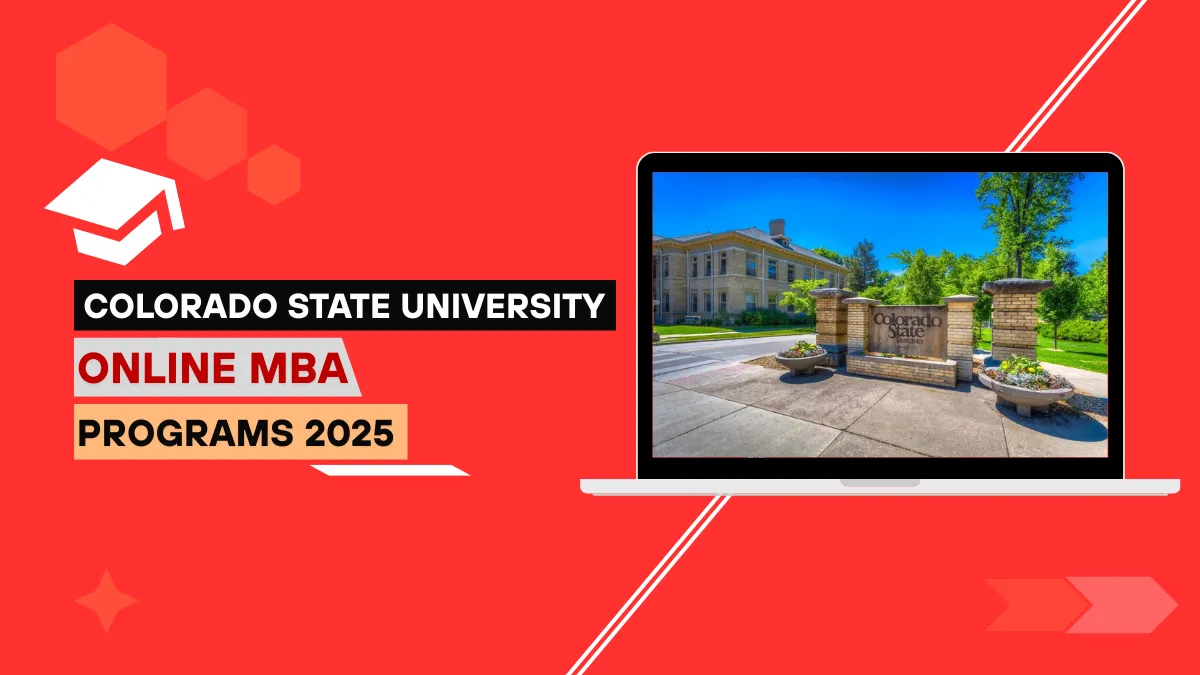Discover everything about Quantic MBA in 2025 including its cost, accreditation, ranking, scholarship options, and whether it’s worth your time and money.
What is the Quantic MBA Program?
The Quantic MBA is a fully online, mobile-first business education program designed for working professionals. Offered by Quantic School of Business and Technology, it combines interactive modules with real-world case studies, group projects, and a powerful alumni network.
Quantic vs Traditional MBA: What’s the Difference?
- 100% online and mobile-first
- Shorter duration: 12 months vs 2 years
- No GMAT required
- Focused on practical learning over lectures
- Significantly lower cost
Who Should Consider a Quantic MBA?
- Mid-career professionals looking to upscale
- Entrepreneurs and startup founders
- International students seeking an affordable U.S. MBA
- Busy professionals who can’t attend a full-time program
How Much Does the Quantic MBA Cost?
Tuition Breakdown: Executive vs Standard MBA
- Standard MBA: $9500 (as of 2025)
- Executive MBA: $14,800 (approx.)
Are There Any Hidden Fees?
No hidden fees. The tuition covers all academic materials, the platform, and community access.
ROI: What You Get for the Price
- Ivy League-level content
- Global peer collaboration
- Access to employer network and alumni
Can You Get an MBA for Free?
Yes, Quantic offers merit-based scholarships and sometimes waives tuition entirely for top candidates through invitation-based scholarships.
The Truth About Quantic MBA Scholarships
What Is the “Scholarship Invitation” Email?
Many applicants report receiving an email offering partial or full scholarships after applying. It’s part of Quantic’s merit-based selection and not a scam.
How to Qualify for a Quantic MBA Scholarship
- Strong professional background
- High academic performance
- Excellent application essay
Is the Quantic Scholarship Legit or a Marketing Gimmick?
It’s real but selective. The program is partially funded by employers and partner sponsorships.
Quantic MBA Acceptance Rate & Eligibility
How Hard Is It to Get Into Quantic?
The acceptance rate is estimated to be around 7-15% depending on the program (MBA vs Executive MBA).
Application Requirements & Selection Criteria
- Resume/CV
- Professional achievements
- Personal statement
- Online aptitude assessment
Tips to Improve Your Chances of Acceptance
- Highlight leadership experience
- Showcase academic or technical skills
- Be concise and confident in your essay
Quantic MBA Accreditation & Global Recognition
Is Quantic School of Business Accredited?
Yes. Quantic is licensed by the D.C. Higher Education Licensure Commission (HELC) and accredited by DEAC (Distance Education Accrediting Commission).
Who Recognizes the Degree?
While not AACSB or AMBA accredited, the degree is recognized by many global employers and institutions.
Can It Compete With Top Business Schools?
Quantic ranks as a disruptive innovator, offering comparable content to Tier 1 programs, though it may lack the prestige of a Harvard or Stanford.
Quantic MBA Rankings & Industry Perception
Does Quantic Appear in Global MBA Rankings?
As a newer institution, it does not yet feature in traditional global MBA rankings like Financial Times or The Economist.
How Employers View the Quantic MBA
Increasingly positive. Many top tech, consulting, and Fortune 500 firms accept Quantic MBAs, especially for candidates with strong work experience.
Alumni Success Stories
Graduates have landed roles at Google, Apple, Deloitte, and more.
Real Quantic MBA Reviews From 2025
What Alumni Say About the Curriculum
- Interactive and concise
- Real-world applicable
- Mobile learning is highly convenient
The Good, The Bad, and The Unexpected
Pros:
- Affordable
- Global networking
- Efficient modules
Cons:
- Lacks traditional prestige
- Fast pace may be challenging for some
Reddit & Quora Feedback: Real Talk or Hype?
Most real-user reviews praise the ROI and flexibility. Criticism usually centers on lack of formal ranking.
Is Quantic MBA Worth It in 2025?
5 Reasons Why It May Be a Smart Choice
- Cost-effective compared to traditional MBAs
- Flexible schedule
- Globally recognized
- No GMAT needed
- Strong peer network
3 Situations Where It May Not Be For You
- If you want Ivy League prestige
- If you’re looking for on-campus networking
- If you prefer traditional lectures and professors
How to Apply for the Quantic MBA Program
Step-by-Step Application Guide
- Visit quantic.edu and select your program
- Submit your application and resume
- Take the online aptitude assessment
- Await scholarship and admission notification
Documents You’ll Need
- Resume
- Academic transcripts
- Government-issued ID
- Essay responses
Key Deadlines to Remember
Quantic admits students on a rolling basis, so earlier applications stand a better chance.
Who Is the Quantic MBA Best Suited For?
For Tech Professionals
Grow into leadership roles with a tech-friendly curriculum.
For Entrepreneurs
Access global peers and startup insights.
For Cost-Conscious Students
Get a U.S.-based MBA education without the debt.
Quantic vs Other Online MBA Programs
Quantic vs Coursera & edX MBAs
| Feature | Quantic | Coursera/edX |
|---|---|---|
| Format | App-based | Video lectures |
| Interactivity | High | Low |
| Accreditation | Yes (DEAC) | Varies |
| Tuition | $9500 avg. | $20,000+ |
Quantic vs IU Online, WGU, and Hult
| Feature | Quantic | WGU | Hult |
| Accreditation | DEAC | NWCCU | AACSB |
| Mode | 100% online | Online | Hybrid |
| Cost | $9.5K | $7K | $38K+ |
| Duration | 12 months | Flexible | 18 months |
Feature Comparison Table (Optional)
Add your own comparative matrix tailored to your readers.
FAQs About Quantic MBA 2025
Is Quantic really free for some users?
Yes, select applicants receive full scholarships through the invite-only process.
What’s the difference between MBA and Executive MBA?
The Executive MBA is designed for more experienced professionals and includes advanced leadership modules.
Will employers respect a Quantic MBA?
Yes, especially if paired with strong experience and achievements.
What are the pros and cons of the mobile-first format?
Pros: Learn anytime, anywhere. Cons: Less face-to-face interaction.






